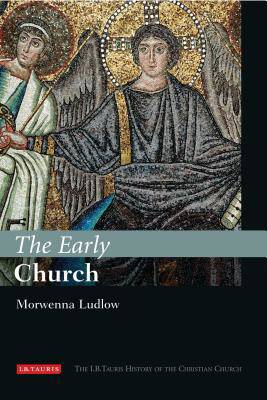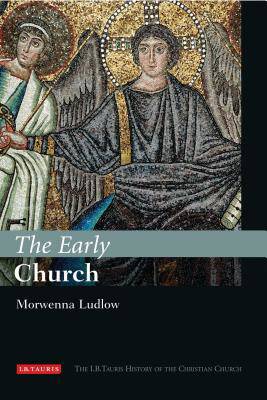
Bedankt voor het vertrouwen het afgelopen jaar! Om jou te bedanken bieden we GRATIS verzending (in België) aan op alles gedurende de hele maand januari.
- Afhalen na 1 uur in een winkel met voorraad
- In januari gratis thuislevering in België
- Ruim aanbod met 7 miljoen producten
Bedankt voor het vertrouwen het afgelopen jaar! Om jou te bedanken bieden we GRATIS verzending (in België) aan op alles gedurende de hele maand januari.
- Afhalen na 1 uur in een winkel met voorraad
- In januari gratis thuislevering in België
- Ruim aanbod met 7 miljoen producten
Zoeken
€ 115,45
+ 230 punten
Omschrijving
How did the early Christians manage to establish a religion and institution which, despite persecution, flourished and grew? How did their initial experience of being a despised minority in the Roman Empire shape their sense of privileged identity and uniqueness? And how was it that - at least at the outset - the first believers were able to exist alongside the same shared traditions, rituals and beliefs of the Jews, despite the Jewish rejection of Jesus as Messiah?The Christian community was born out of paradox: its faith in a man who was also the 'anointed one' (or Christ) of God; and its growth and development often echoed those complex and contradictory origins. Morwenna Ludlow discusses the fragile context as well as the emerging core beliefs of the early Church (including divine creation, salvation, eschatology, the humanity and divinity of Christ and the inter-relationships of the Trinity) between 50-600 CE. She also examines the process of Christian self-definition in response to groups on the edge of the Church, such as Gnostics, Marcionites, Montanists and Manichaeans, as well as in relation to Judaism.
Bringing to vivid life the remarkable history of the early Church, in all its conflict and struggle, the author shows why such a successful faith was able to rise out of such improbable and unpromising beginnings.
Bringing to vivid life the remarkable history of the early Church, in all its conflict and struggle, the author shows why such a successful faith was able to rise out of such improbable and unpromising beginnings.
Specificaties
Betrokkenen
- Auteur(s):
- Uitgeverij:
Inhoud
- Aantal bladzijden:
- 304
- Taal:
- Engels
- Reeks:
Eigenschappen
- Productcode (EAN):
- 9781845113667
- Verschijningsdatum:
- 1/02/2009
- Uitvoering:
- Hardcover
- Formaat:
- Ongenaaid / garenloos gebonden
- Afmetingen:
- 155 mm x 234 mm
- Gewicht:
- 635 g

Alleen bij Standaard Boekhandel
+ 230 punten op je klantenkaart van Standaard Boekhandel
Beoordelingen
We publiceren alleen reviews die voldoen aan de voorwaarden voor reviews. Bekijk onze voorwaarden voor reviews.









